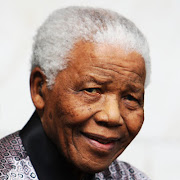A lot has been said and written about hate-mongering, racism, xenophobia and Islamophobia in the Finns Party, Finland's anti-immigration and nationalist political party. The party's sympathizers and members on the other hand claim that there is a witch-hunt against the party. But news that one of the party's councilors demanded a "Somali-free" meeting room adds to a long list of intolerance-related scandals, and supports the view that the party in fact has racist components.
A Finns Party politician in the eastern town of Lieksa, Esko Saastamoinen, demanded - according to Yle - a new meeting space for his delegation because the current room was also used sometimes by Somalis. Saastamoinen reportedly told the city secretary that his party's councilors might catch an infectious disease if they continue to use the same room with Somalis. Another Finns Party member reportedly said the room should be "fumigated" -- in order to disinfect it.
Somalis, it is worth mentioning, are among the largest groups of immigrants in Finland and according to a poll commissioned by Helsingin Sanomat are among the groups most affected by racism and intolerance in the country. The same poll showed that Finns Party members are most willing to concede negative attitudes towards minorities. In 2010 and 2011, the risk of unemployment was higher among Somali speakers than among any other foreign language group in Finland, according to Statistic Finland. The Director of Immigration Affairs for the City of Helsinki stated in 2010 that employer discrimination accounts for the high rate of Somali unemployment in the capital.
In my view, Esko Saastamoinen's request for a "clean" room is plainly racist and akin to apartheid and racial segregation. It is reminiscent of a low point in history when blacks were segregated in public transportation, restaurants, neighborhoods, hotels and other public places. The request is despicable and highlights the negative perception of Somalis and people of African descent in modern-day Finland. It speaks volumes about the composition of the Finns Party and what some of its members would like to achieve. The fact that Saastamoinen continues to serve as deputy chairperson of Lieksa city council shows that racist views are tolerated in the party.
I welcome the move by a Somali group in Lieksa to file a criminal complaint in relation to the request by Finns Party councilors, and the decision of the local police to investigate suspected discrimination and incitement against an ethnic group. In my opinion, the request for a "Somali-free" meeting room on grounds that the African group is "infectious" is derogatory, slanderous and amounts to incitement against a vulnerable minority group.
Timo Soini, leader of the nationalist Finns Party said on Hard Talk in February 2013 that there is no strand of racism in his party. The words of high level members of his party, including parliamentarians and city councilors like Esko Saastamoinen debunk his claim. The "true" Finns party, in my view, has racist elements.
Savanofsky: Only KJV
-
Remarks: A song about KJV Onlyism! And a funny one at that. It even has
over 350,000 views on YouTube in its first 16 months (it came out in
December 2022)...
4 days ago








